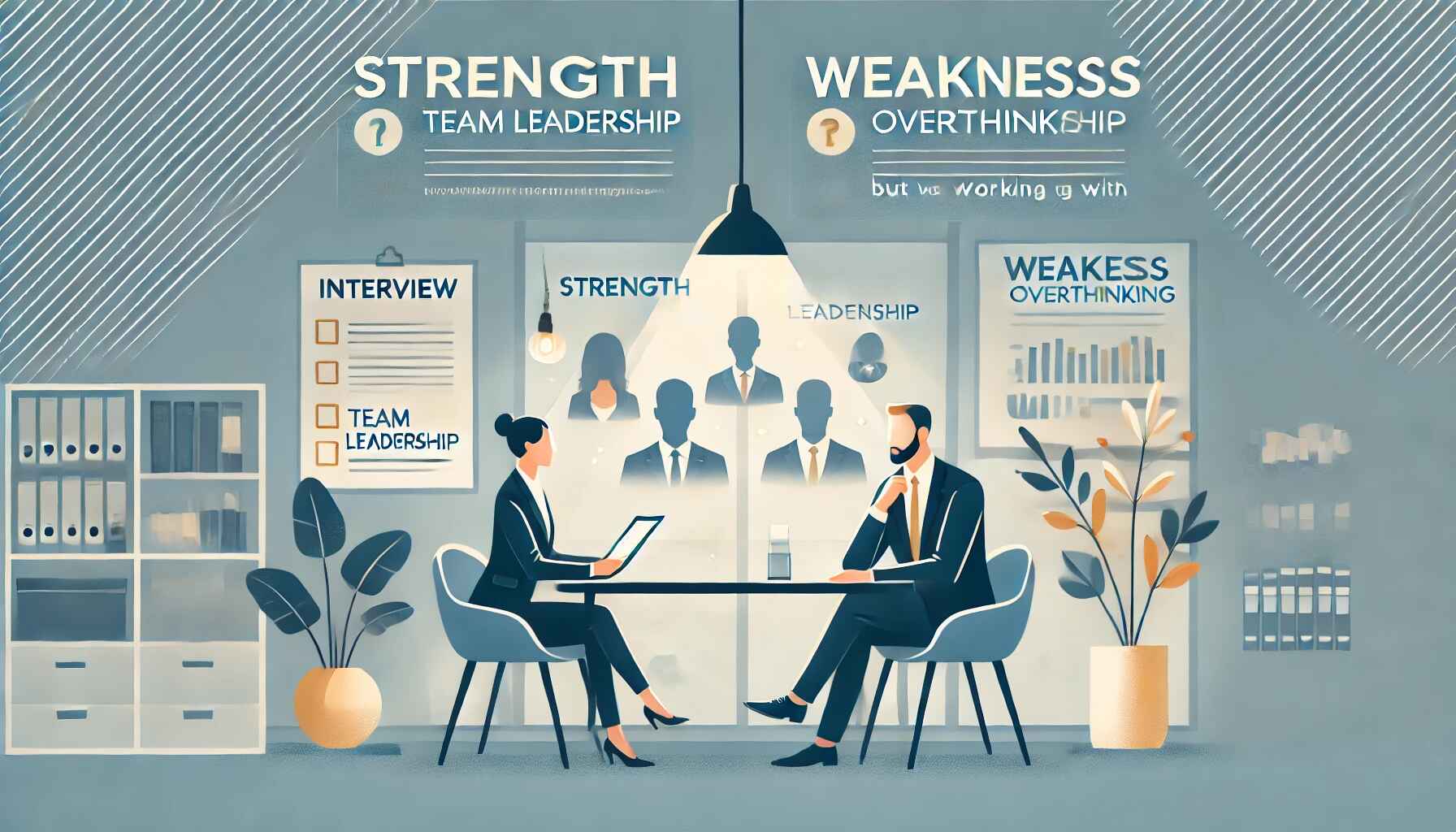Navigating the Strengths and Weaknesses Interview Question: Best Answers
It asks why this question is always there in examinations of this sort. Evaluation of self-awareness and character attributes is an important factor for potential understanding of growth in the organization. It helps employers gain insights into the level of honesty as well as a growth mindset. The compatibility of values and workstyle by the candidate with the corporate culture is what is expected evaluation in interviewers. Dealing with the question well, however, requires careful balancing between being honest with flaws and putting your best foot forward showing that one is taking the initiative in getting better.
A few weeks ago, I stumbled across an article titled "200 Best Interview Questions," and lo and behold-I came across the most common interview question: "What are your strengths?" In fact, I have also encountered this question quite too many times in varying interviews. It is evidently and obviously a classic question-fit to be called one because, no matter how often we hear it, we always dread the moment when it is asked of us. It is one such question that puts everybody on the spot with the inherent possibility of one having to think on the feet.
In other words, this is the important checkpoint in the interview process. It evaluates self-knowing from one's own person, as well as allows an insight for the employer towards understanding an individual's character and possible growth within the firm. By that, he or she will have perceived the truthfulness of the candidate and what interest the candidate has in continuous improvement or growth mindset, as well as whether their values and work style match the corporate culture.
Balancing that effort is most certainly going to take much work. You must be clear about your shortcomings, but show that you can shine in such ways while actively taking the initiative to improve yourself.
II. Crafting Your Strengths
To effectively showcase your strengths, follow these guidelines:
- Select Job-Relevant Strengths: Carefully choose strengths that directly align with the specific job requirements and the company's values. For example, if applying for a marketing position, highlight strengths like "creativity," "communication," "analytical skills," and "project management." Avoid generic or overly broad strengths like "hardworking" or "team player."
- Provide Concrete Examples: Back up your claims with specific and impactful examples. Instead of simply stating "I'm a strong communicator," say "I successfully led a team presentation that resulted in a 15% increase in client engagement." Utilize the STAR method (Situation, Task, Action, Result) to structure your examples effectively.
- Quantify Your Achievements: Whenever possible, use numbers and data to demonstrate the impact of your strengths. For instance, "I increased sales by 10% through effective negotiation skills." This adds credibility and weight to your claims.
- Highlighting Transferable Skills: Emphasize skills that are applicable across various roles and industries. This demonstrates your versatility and adaptability.
III. Identifying and Framing Your Weaknesses
This is where many candidates stumble. The key is to present weaknesses in a way that demonstrates self-awareness and a proactive approach to improvement.
- Adopt "Soft" Weaknesses: Choose growth areas that are not quite directly tied to key job functions. For example, instead of "I'm really bad at deadlines," you could say, "I do struggle with time management when it comes to complicated projects."
- Convert Weaknesses into Strengths-in-the-Making: Place your weaknesses in the active voice and say you are working on them, like, "I used to be timid in raising a voice during meetings; I have started taking up public speaking workshops."
- Focus on Growth and Learning: Bring forth your willingness to learn and involve yourself in continuous improvement. Expose your interests in learning and acquiring new skills.
- For example: "I am always on the lookout for means to improve my presentation skills through online classes and peer reviews."
IV. Example Answers
- Strength Example: "One of my greatest strengths is my ability to build strong relationships. In my previous role, I successfully fostered collaborative relationships with cross-functional teams, leading to the successful launch of a new product line. This collaborative approach resulted in significant cost savings and improved team morale."
- Weakness Example: "I sometimes tend to be a perfectionist, which can occasionally lead to minor delays in project completion. To address this, I've implemented a system of regular check-ins with my team to ensure I'm staying on track and prioritizing tasks effectively. I'm also learning to delegate effectively to maximize efficiency."
V. Tips for a Successful Interview
- Company Research: Delve into the corporation's culture, core values, and expectations through extensive research. This will thus help mold your responses in terms of their specific needs and preferences.
- Perfect Practice: Run through aloud once or twice with a friend or in front of a mirror to further hone your answers to the question of "strengths and weaknesses" to better delivery and clarity.
- Be True and Authentic: Authenticity is in it. Personality should flow through the answering. Be real and don't try to pretend that it is a perfect image.
- Cultivate Self-Confidence: Eye contact, the opening of one's mouth, and confidence should come out clearly in the ability of the speaker.
- Prepare For Follow-Up Questions: You should be able to predict some of the questions that might follow the previous questions asked by the interviewer regarding strengths and weaknesses.
VI. Conclusion
The "strengths and weaknesses" question is a valuable opportunity to showcase your self-awareness, growth mindset, and suitability for the role. By carefully selecting and framing your answers, you can effectively demonstrate your strengths and address potential areas for improvement while projecting a positive and confident image to the interviewer.
Remember, the goal is not to present a flawless image, but to demonstrate that you are a well-rounded individual with a desire to learn and grow. By focusing on your strengths and addressing your weaknesses constructively, you can increase your chances of making a strong impression and landing the job.









